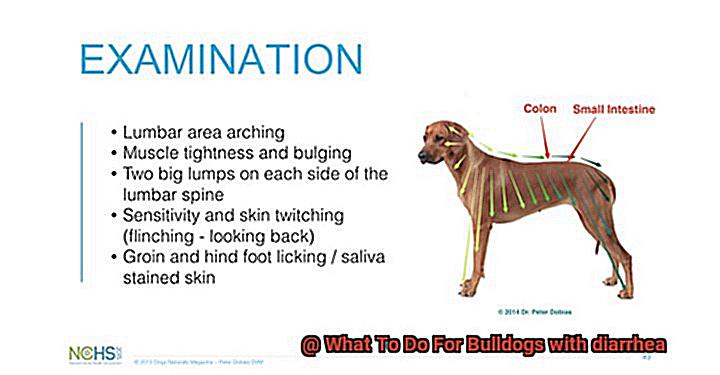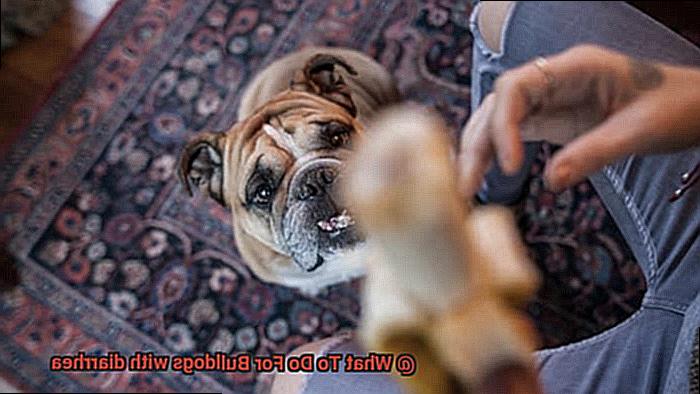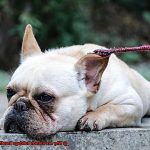What To Do For Bulldogs with diarrhea?
Are you worried about your bulldog’s diarrhea? You’re not alone. This is a common problem for many bulldog owners. But don’t worry, there are things you can do to help your pup feel better.
The most important step is to get them medical attention right away. Diarrhea can be caused by a variety of conditions and should always be checked out by a vet to rule out any serious health issues.
Once your pup has been examined and diagnosed, there are several ways you can treat their symptoms at home. From diet changes to vitamins and medications, there are products available that can make your dog more comfortable.
In this blog post, we’ll explore the various causes of diarrhea in bulldogs as well as an overview of the drugs available. We’ll also have advice on when it’s time to see the vet again and tips on how to prevent future episodes from happening.

If your furry friend has been suffering from loose stools lately, read on for all you need to know about bulldogs with diarrhea.
What Causes a Bulldog to Have Diarrhea?
Contents
- 1 What Causes a Bulldog to Have Diarrhea?
- 2 The Symptoms of Bulldog Diarrhea
- 3 How Do You Treat Diarrhea in Bulldogs?
- 4 What Home Remedy Can I Give My English Bulldog for Diarrhea?
- 5 Diet and Nutrition for Bulldogs with Diarrhea
- 6 Veterinary Care for Bulldogs with Diarrhea
- 7 Preventative Measures to Avoid Bulldog Diarrhea
- 8 When to Seek Emergency Treatment for Bulldog Diarrhea
- 9 Conclusion
Diarrhea in bulldogs can be uncomfortable and even dangerous, so it’s important to know what causes it. Urine diarrhea in bulldogs can be caused by a variety of different factors, including dietary changes, stress, parasites, and bacterial infections.
If your bulldog suddenly eats a new or lower-quality food than they are used to, they could suffer from diarrhea. Stress can also cause digestive issues due to the hormones released during stressful situations. Worms and protozoa can also lead to diarrhea if your bulldog is exposed to them. Lastly, bacterial infections can cause diarrhea if your bulldog eats contaminated food or water.
It’s vital that you take steps to prevent diarrhea from happening in the first place. Make sure that your bulldog is eating high-quality food, minimizes their exposure to parasites, and is always provided with clean water and uncontaminated food.
The Symptoms of Bulldog Diarrhea
Are you worried about your bulldog’s health? If so, it’s important to be aware of the symptoms of bulldog diarrhea. This condition is characterized by frequent and loose stools that may contain mucus or blood. The stool can also be watery and have an unpleasant odor. Other signs to look out for include vomiting, loss of appetite, weight loss, lethargy, and dehydration.
If you notice any changes in your bulldog’s behavior or health, don’t hesitate to contact your veterinarian. Your doctor will be able to determine the cause of the diarrhea and provide medication, if necessary.
How Do You Treat Diarrhea in Bulldogs?
If your bulldog is suffering from diarrhea, you’re not alone! This common condition can be caused by a variety of things, but fortunately, there are treatments to help your pup feel better.

When it comes to treating bulldog diarrhea, the first step is to determine the underlying cause. If it’s caused by a virus, antibiotics will not be effective. However, if it’s due to a bacterial infection, antibiotics may be prescribed.
In addition to antibiotics, other treatments like dietary changes and probiotics may be recommended in order to restore the balance of good bacteria in the gut. Anti-diarrheal medications can also help reduce symptoms and prevent dehydration. In cases of severe dehydration due to diarrhea, IV fluids or electrolytes may also be recommended.
It’s important to consult with your veterinarian in order to determine the best treatment plan for your bulldog’s diarrhea.
What Home Remedy Can I Give My English Bulldog for Diarrhea?
If your English Bulldog is suffering from diarrhea, you can help ease their digestive system and reduce the symptoms with some simple home remedies.
Plain boiled rice, pumpkin puree, and plain yogurt are all natural remedies that can help soothe their stomachs.
Boiled chicken and boiled potatoes in small amounts can also be used to keep them hydrated.
Probiotics are a great way to restore the balance of good bacteria in their gut, while slippery elm bark helps coat the stomach and intestines, reducing irritation from diarrhea.
Ginger is another natural remedy that helps reduce inflammation and soothe an upset stomach. Lastly, chamomile tea is a natural remedy that contains anti-inflammatory properties that can be used to treat diarrhea.
Diet and Nutrition for Bulldogs with Diarrhea
Start by feeding your pup a high-quality, balanced diet that is low in fat and contains plenty of fiber. This will help to reduce the severity of their diarrhea. You can also supplement their diet with probiotics to restore the balance of good bacteria in the gut.
On the other hand, avoid giving your bulldog foods that are high in sugar or artificial additives, as these can cause further digestive issues. If you’re unsure about what type of food is best for your bulldog, don’t hesitate to consult with your veterinarian for advice.
Veterinary Care for Bulldogs with Diarrhea
When your bulldog has diarrhea, it’s essential to seek professional veterinary care. Diarrhea can be caused by a variety of things, including bacteria or parasites, and your vet will be able to identify the condition and prescribe medications. Diagnostic tests such as fecal exams, blood tests, and radiographs may be necessary to determine the underlying cause.
If the cause is bacterial or parasitic, your vet may prescribe antibiotics or anti-parasitic medications. Dietary changes can also be recommended. Adding probiotics may help balance the bacteria in your bulldog’s gut and aid digestion.
In cases of severe diarrhea, hospitalization for intravenous fluid therapy and other treatments may be necessary. If symptoms persist for more than a few days or if there are signs of dehydration, immediate veterinary attention is needed for a full recovery.
Preventative Measures to Avoid Bulldog Diarrhea
Bulldog diarrhea is an uncomfortable and potentially dangerous condition for your beloved pup. Fortunately, there are some simple preventative measures you can take to help keep your bulldog healthy and free from this digestive issue.
Start by providing clean, fresh water at all times. Also, feed your bulldog a balanced diet and avoid giving them table scraps or other human foods that may cause stomach upsets.
It’s also important to keep their environment clean and free of any potential toxins or contaminants that could lead to diarrhea. To ensure proper digestion, maintain a regular schedule for feeding and exercise.
Be sure to monitor your bulldog’s health daily, looking out for signs of digestive issues such as vomiting, flatulence, or loose stools. If you notice any signs of diarrhea, contact your vet immediately for advice on how to treat it properly.
When to Seek Emergency Treatment for Bulldog Diarrhea
Diarrhea is a common cause of distress for bulldogs and their owners. If your bulldog is suffering from diarrhea, it’s important to be aware of the signs that may require emergency treatment.
If your bulldog has had diarrhea for more than 24 hours, it’s essential to take them to the hospital right away. Other symptoms that may indicate an emergency include vomiting, lethargy, abdominal pain, dehydration, fever, and bloody stools.
Once you have taken your bulldog to the hospital with any of these signs or if they have had diarrhea for more than 24 hours, the vet will conduct a physical examination and run tests to diagnose the cause of the diarrhea. Depending on what they find, they may need to develop a treatment plan that could include antibiotics, intravenous fluids, anti-nausea drugs, probiotics, or dietary changes.
It’s important to keep an eye on any changes in your bulldog’s wellbeing and seek medical attention when necessary.
Also Read: French Bulldog Diarrhea
Conclusion
Diarrhea in bulldogs can be a serious issue, but it can be managed with the right care. Start by having your pup examined by a veterinarian to rule out any underlying health problems.
From there, treatments like diet changes, vitamins, and medications can help ease their digestive system and reduce diarrhea-related symptoms.
Preventative steps are also key for avoiding future episodes. Provide your bulldog with high-quality food, minimize their risk of parasites, and always keep their water and food uncontaminated.
Additionally, monitor any changes in your pup’s health and seek medical attention if they have diarrhea for more than 24 hours or show signs of dehydration or fever.




